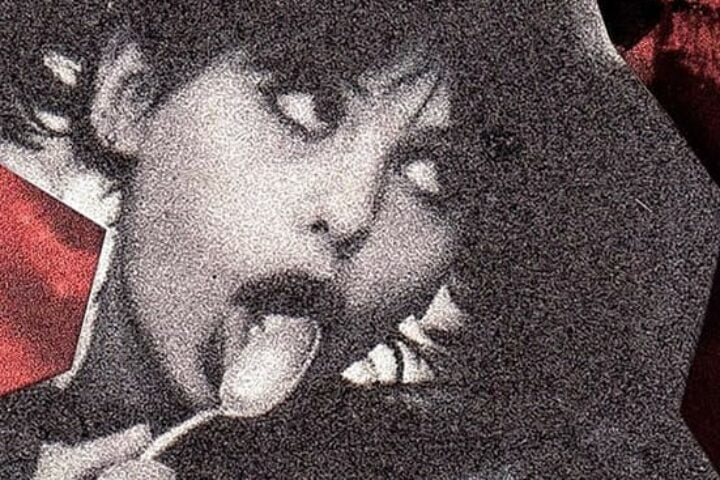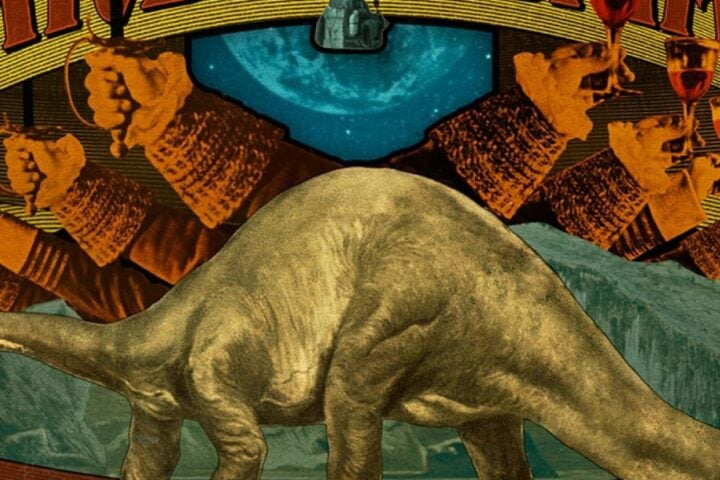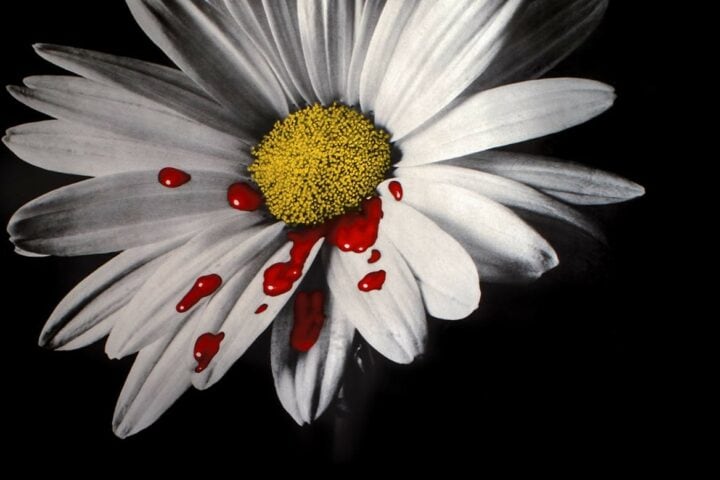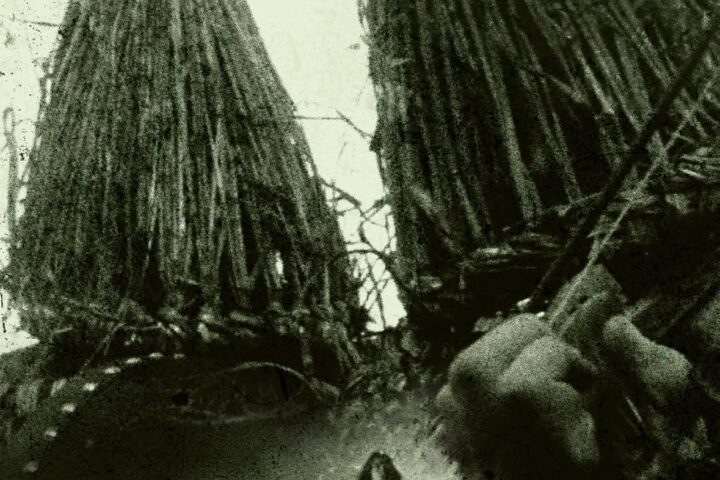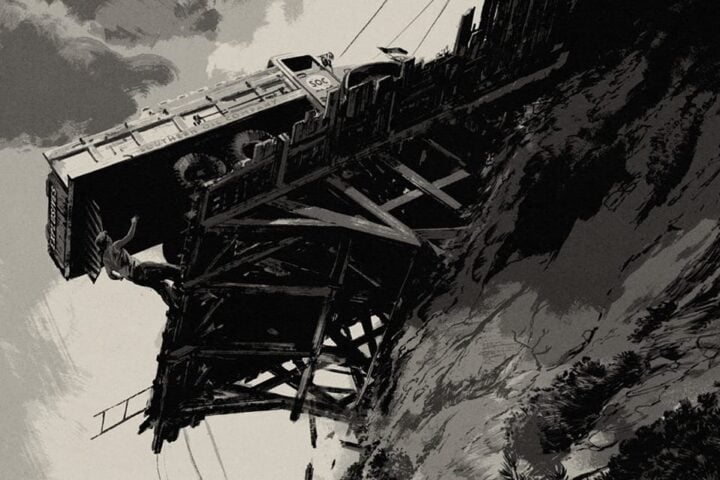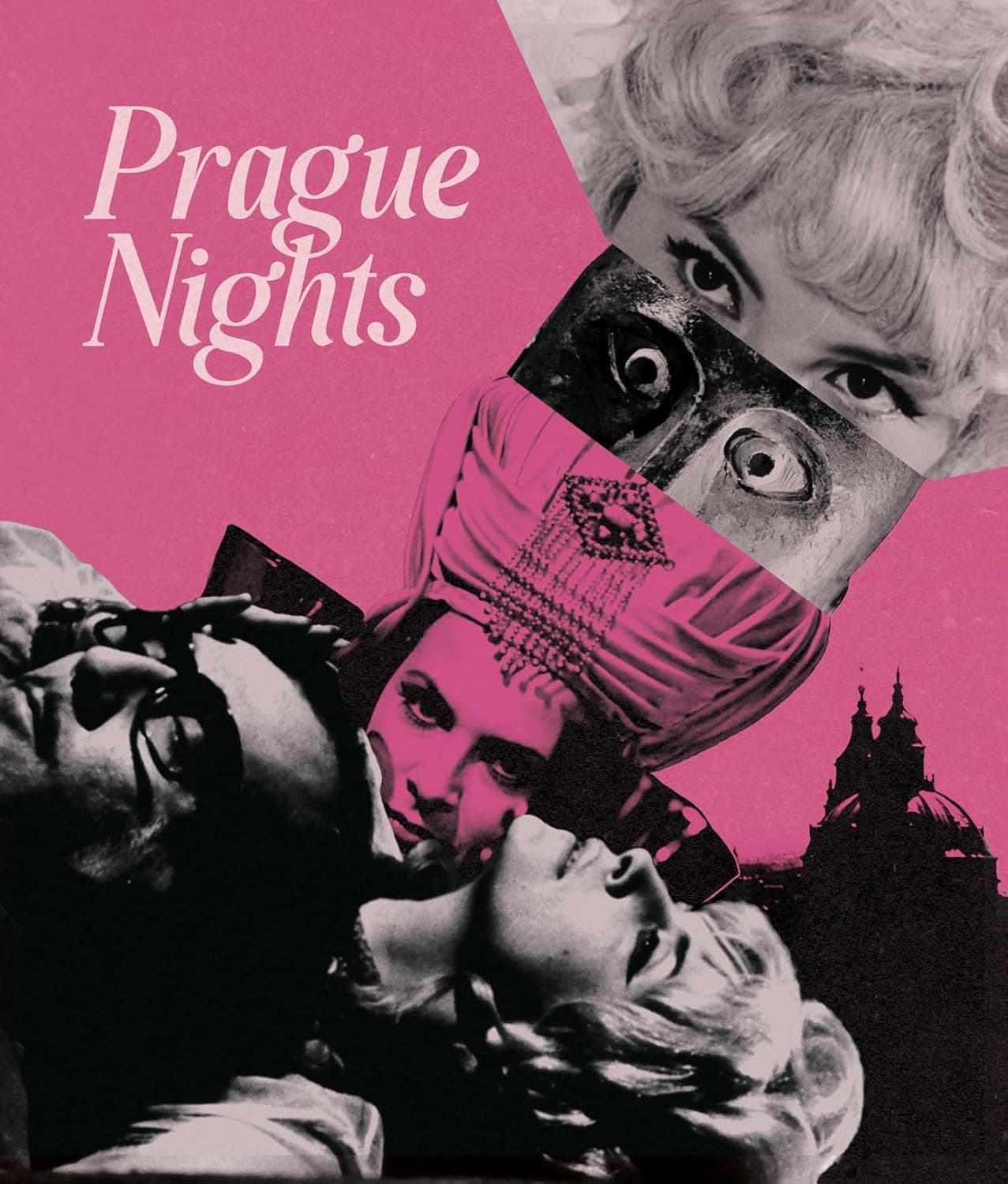 The 1969 Czech anthology film Prague Nights consists of a trio of tales of lust, revenge, and feminine wiles, each infused with a singular combination of the macabre, the grotesque, and the comically sensual in depicting some of the darkest and most mysterious aspects of Czech culture. Between the intriguing visual techniques (including color filters and stop-motion animation), genre mashups, and musical scores that range from Gregorian chants to Nino Rota-esque orchestral pieces, the segments readily whip up dense, moody atmospheres that are as playfully provocative as they are eerily doom-laden.
The 1969 Czech anthology film Prague Nights consists of a trio of tales of lust, revenge, and feminine wiles, each infused with a singular combination of the macabre, the grotesque, and the comically sensual in depicting some of the darkest and most mysterious aspects of Czech culture. Between the intriguing visual techniques (including color filters and stop-motion animation), genre mashups, and musical scores that range from Gregorian chants to Nino Rota-esque orchestral pieces, the segments readily whip up dense, moody atmospheres that are as playfully provocative as they are eerily doom-laden.
The film opens with a framing story in which a foreign businessman (Miloš Kopecký) is looking for a good time and follows a coquettish blonde (Milena Dvorská) into a remote cemetery where she regales him with three supernatural, fantastical stories. Where the pair are gallivanting about contemporary Prague, each successive segment is set further in the past and draws on the city’s unique confluence of cultural influences and, as Czech film critic Tereza Brdečka writes in her essay for this release, its “intermingling of cultures, customs, superstitions and legends” from all over Central Europe.
The first segment, Jiří Brdečka’s “The Last Golem,” is the most deeply unsettling, following a young rabbi, Neftali Ben Chaim (Jan Klusák), in his obsessive quest to build a Golem out of clay for a goyim king. With haunting chants dominating the score and cryptic siren calls from the king’s beautiful yet dangerous mute servant (Lucie Novotná) drawing the rabbi further into a hypnagogic state, “The Last Golem” is distressingly nightmarish. It’s at its most terrifying when the golem is magically granted the natural powers of fire, water, and air in a sequence that seamlessly melds elements of horror, fantasy, and the occult.
In Evald Schorm’s “Bread Slippers” and Milos Makovec’s “Poisoned Poisoner,” women are more pernicious, even though the segments themselves are more lighthearted and ironic in tone. Schorm’s segment follows a bored 18th-century countess (Teresa Tuszynska) through her flirtations with her chambermaids and lethal dalliances with various men. After following a satanic shoemaker (Josef Somr) to an abandoned mansion, the hedonistic countess engages in an eternal and infernal dance that becomes a form of repentant torture, whose terror is heightened by the mocking presence of men in freaky Venetian masks.
If “Bread Slippers” crosses over into misogynistic terrain, “Poisoned Poisoner” freely indulges in viciously humorous misanthropy. Although the segment initially sets its sights on its medieval, gender-swapped Bluebeardesque protagonist (Dvorská)—who offs one suitor after another for their jewels, and with the help of her duty-bound servant (Václav Kotva)—it soon fully embraces the absurdity and irony of her plight. Playing out like a psychedelic musical, with rotating color filters, eye-popping costumes, and a joyous ’60s pop score by Zdeněk Liška, “Poisoned Poisoner” is imbued with the blackly comic humor that defined the Czech New Wave.
Image/Sound
Deaf Crocodile’s transfer of a new 4K restoration of Prague Nights is rich in detail, expertly capturing the lush textures and vibrant hues of the elaborate sets and costumes, while the wide range of colors are well-calibrated throughout each of the three segments. Grain is present and consistent and the image is sharp and, aside from the occasional minor scratch, largely free of damage. On the audio front, the uncompressed mono track features clean dialogue and enough depth to properly convey the eerie atmosphere of Jan Klusák and Zdenek Liska’s eclectic score.
Extras
In an informative new audio commentary, Czech film critic and screenwriter Tereza Brdečka and Czech film expert Irena Kovarova discuss the genesis of Prague Nights and add plenty of historical context about the eras in which each segment is set. They also cover the backgrounds of all three directors and their work within the Czech New Wave. Tereza Brdečka returns in a 45-minute interview to talk in much more depth about her father’s career, touching on his love of American films, his work in various artistic mediums, and the distinctly black humor he brought to his work. Two of Jiří Brdečka’s animated short films, “Revenge” and “There Was a Miller On a River,” are also included, along with a booklet with an essay by Brdečka that focuses on the cultural history of Prague and how that informed the film.
Overall
This strange, bewitching, and sensuous Czech anthology film gets a beautiful new transfer and several illuminating extras courtesy of Deaf Crocodile.
Since 2001, we've brought you uncompromising, candid takes on the world of film, music, television, video games, theater, and more. Independently owned and operated publications like Slant have been hit hard in recent years, but we’re committed to keeping our content free and accessible—meaning no paywalls or fees.
If you like what we do, please consider subscribing to our Patreon or making a donation.

